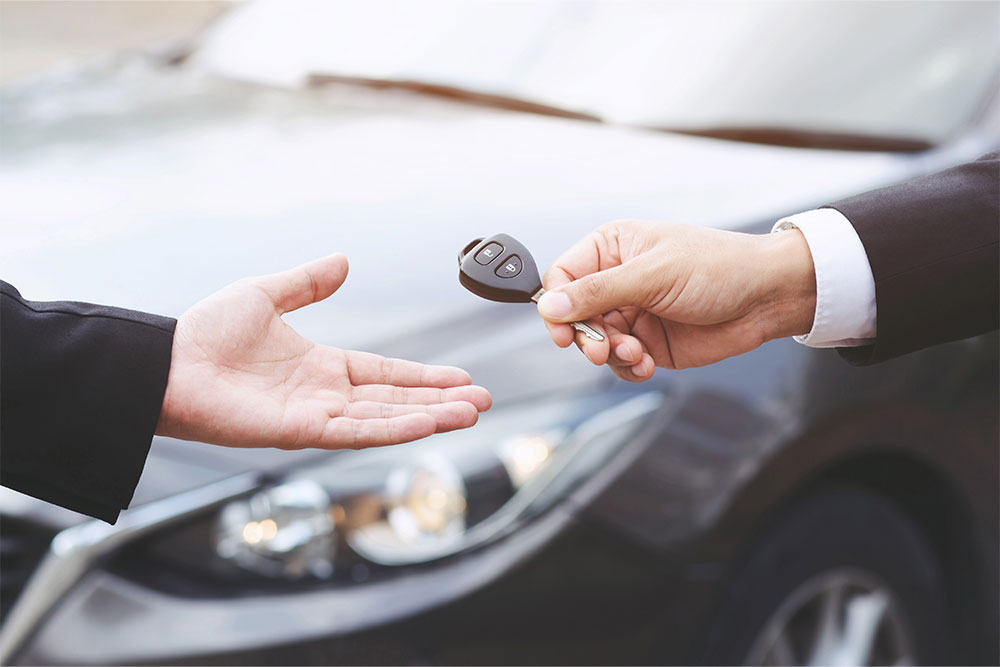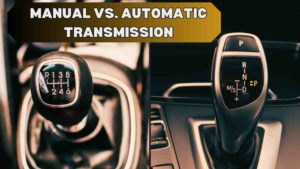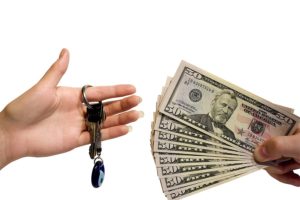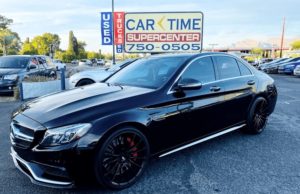Timing plays a big role when it comes to getting the most value out of your vehicle. Understanding the best time to sell a car can help you walk away with more money and fewer complications. While personal circumstances often guide the decision to sell your car, there are other factors that can shape your success. Seasonal trends, market conditions, and your vehicle’s condition all matter. The goal is not just to sell quickly, but to sell smart.
Why Timing Affects Value
The used car market shifts constantly. Car values change based on buyer demand, vehicle supply, gas prices, and even the release of newer models. Selling at a time when buyers are actively shopping and dealerships are stocking up can place you in a much stronger position. On the other hand, trying to sell when demand is low or the market is saturated may mean accepting less than what your vehicle is worth.
Spring and Early Summer Sell Well
If you’re thinking about when to sell your car, the months between March and June often offer the best chance of success. During this time, many buyers have extra cash in hand thanks to tax refunds. Families are preparing for summer travel or looking for a second vehicle before the new school year. Warmer weather also brings more motivation for people to shop around and explore options. All of this activity drives up demand and prices, making it an ideal season to list your car for sale.
Watch for Mileage Milestones
Mileage can significantly influence how much your car is worth. Selling your vehicle before it hits 100,000 miles can make a noticeable difference in its resale value. Most buyers prefer cars with mileage under that number, viewing them as more reliable and longer lasting. Cars also tend to lose value more quickly after the five-year mark. If your vehicle is approaching that age or mileage, now might be the right time to sell before the numbers work against you.
In addition to overall mileage, consider the vehicle’s maintenance timeline. If your car is close to needing expensive repairs or services, it may be better to sell before those costs come up. Buyers are usually more attracted to vehicles that won’t require big investments right after the purchase.
Timing Around New Model Releases
Another factor in figuring out when is the best time to sell your car is the release schedule of new models. Most manufacturers begin launching the next year’s cars in late summer or early fall. Once new models hit the market, your current model may lose value, even if it’s in excellent condition. The longer you wait after that, the more buyers may turn their attention to newer options.
Selling your car before the new version arrives keeps it relevant in the eyes of potential buyers. That can translate into a higher selling price and more interest from both private buyers and dealerships.
Responding to Market Trends
Recent years have shown how unpredictable the used car market can be. During times of low vehicle supply, such as the pandemic-era inventory shortages, used cars suddenly became more valuable. Sellers who listed their vehicles during those windows often received higher offers than expected.
It helps to stay aware of current trends, even if you are not planning to sell immediately. If you see headlines about low dealership inventory or high demand in your area, it might be a smart time to move forward. On the flip side, if the market is flooded with used vehicles, waiting a bit could lead to better pricing down the road.
Year-End Sales Events and Quotas
Although spring and summer are top choices for selling, there are some advantages to selling in late fall or early winter. Many dealerships aim to meet year-end sales quotas, and that can mean more aggressive trade-in values or cash offers. If you’re planning to sell your car directly to a dealer, their timeline might work in your favor.
That said, private buyers are often less active during this time of year. Between holiday spending and colder weather, car shopping tends to drop off. If you’re hoping to sell on your own rather than through a dealer, waiting until activity picks back up in the spring could lead to better results.
Condition Plays a Big Role
Selling a car in great shape always helps your odds, no matter the season. Buyers pay more attention to vehicles that are clean, well-maintained, and free of mechanical issues. Even small steps like getting a fresh oil change or having your car professionally detailed can lead to stronger offers.
Still, it is important not to hold on too long. Every extra month adds more wear, more miles, and potentially more repairs. If your car is still in good shape and hasn’t needed major work, that may be the best time to act before it becomes more costly to keep.
Fuel Prices Influence Demand
Gas prices have a noticeable impact on what kinds of vehicles buyers want. When prices at the pump are high, cars that offer better fuel economy or hybrid options tend to become more desirable. If you’re driving a small car or hybrid, this can be an advantage during a time of rising fuel costs.
For those selling trucks or large SUVs, lower gas prices can bring more interest. You may also find more interest in these vehicles when people are planning for outdoor travel or construction projects. Understanding how fuel costs impact demand in your area can help you decide when to list your vehicle.
Regional Demand Can Shift
What works in one city might not apply elsewhere. In some areas, compact cars and hybrids are the most popular. In others, buyers are more interested in trucks and vehicles with four-wheel drive. If you live in a region that experiences harsh winters, your SUV might sell faster just before the season changes. If your area is warmer year-round, convertibles might be a hot item in early summer.
Keeping track of what vehicles are selling quickly in your area gives you a better idea of how your own car fits into the current demand. Watching local listings and pricing trends can help you decide if now is the right time to sell.
Trade-In Timing
If you’re planning to sell your car as part of a trade-in deal, timing becomes even more important. Some dealerships offer better trade-in values during certain times of year, especially when they need to increase inventory. Selling before a new model release or during peak shopping seasons can put you in a stronger position during negotiations.
It also helps to know your car’s estimated trade-in value ahead of time. This lets you compare offers and avoid underselling. Dealerships may be more flexible near the end of a sales month or quarter, so it’s worth asking if timing affects their current offers.
Should You Sell Before Buying?
There is no single right answer to this question. Selling first gives you more cash in hand and allows you to shop without pressure. But holding on to your current vehicle until you secure a new one may be more convenient, especially if you rely on it for daily transportation.
It comes down to what works for your budget and schedule. Researching prices, talking to dealerships, and knowing what vehicles are available can help you decide how to move forward without surprises.
The Bottom Line
So, when is the best time to sell your car? For most people, the best window falls between March and June. That is when demand tends to peak, buyers are most active, and prices are generally more favorable. Still, that is not the only factor to consider. Market conditions, new model releases, vehicle condition, and local demand all play important roles. The right time to sell may depend just as much on your car’s condition and your needs as it does on the calendar.
Selling a car is never just about handing over the keys. It is about knowing what your vehicle is worth, reading the market, and choosing the moment that gives you the best return. With a bit of planning and awareness, you can make a move that feels both practical and rewarding.
Sell With Confidence
At Car Time Supercenter, we have spent over 40 years helping drivers get more from their vehicles. As a family-owned business, we make it easy for you to trade in or sell your car with confidence. Our large inventory, car financing options, and commitment to serving everyone are just a few reasons why people trust us. Ready to get started? Visit Car Time Supercenter and let us help you move forward.

There are good reasons people will buy their next used car in Tucson from Car Time Supercenter. But I think we are one of the most trusted used car dealerships mainly because we treat everyone like family. My family has provided quality, dependable local used cars to Tucson customers since 1984, and I’m proud to be a part of our continued success.
Like many family-owned businesses, I grew up going to work with my dad. Falling in love with cars was natural because of my father’s passion, and eventually, I came to love the car business just like him. I officially joined the Car Time Supercenter team in 2012, starting in the finance department. Over the past decade, I’ve learned the used car business and how to treat customers from my family and industry resources.
Today, I oversee marketing, social media, inventory, and reconditioning, so I play an essential role in delivering local Tucson used car buyers the best experience possible. I also help our family business keep up with the times while providing old-fashioned customer service. From attending NADA classes to becoming Allstate certified for back-end products, I continue to learn and add skills to serve our customers better.




